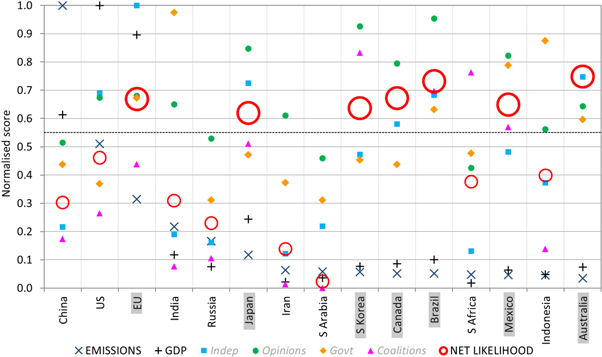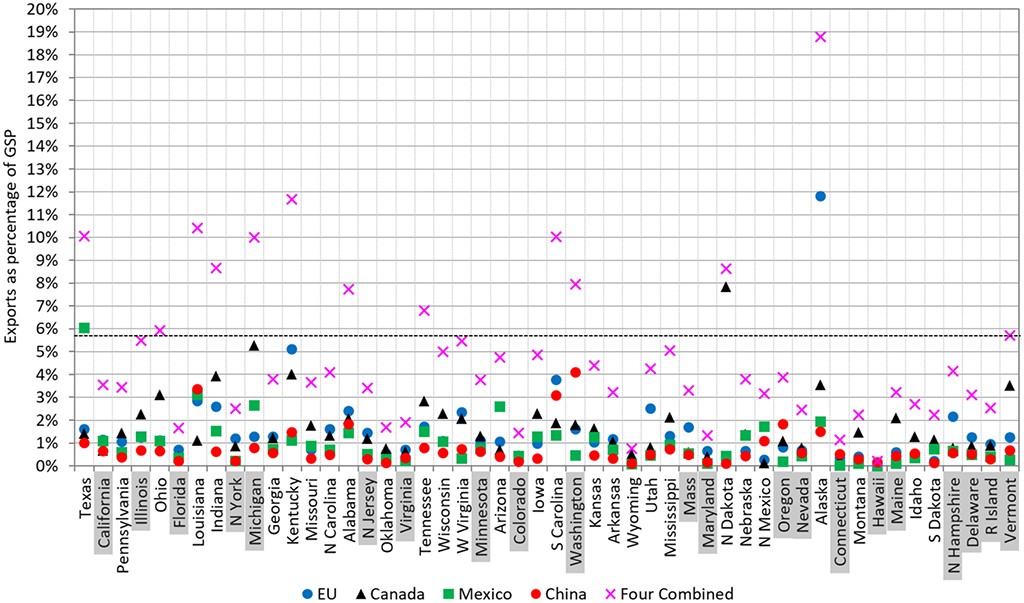The Paris Climate Agreement relies on voluntary action by countries as it was impossible to achieve global policy coordination among all countries. As a result, national climate policies remain weak. A climate club or coalition of countries has been suggested as a means to move towards more effective global governance. It would involve uniform policy, most likely carbon pricing. The club could attract further membership by imposing penalties on imports from non-members, to limit competition from unregulated sources. Through economic and moral pressure, it would then expand. In addition, it could speak with a single, powerful voice at UN climate summits. We take this idea a step further by extending a club to comprise sub-national states or provinces. This is especially relevant to the US, given its withdrawal from the Paris Agreement. Our study used 4 measures to predict the likelihood of involvement for governments at multiple levels. We identified a group of nine countries likely to be receptive to club membership (Figure 1). The EU appears as the preferred initiator of the club, given its high emissions and history of climate leadership. China could likely be convinced to join given its recent sharp rise in concern about local and global emissions. As US states have significant control over their economies, we evaluated the likelihoods of individual states joining the club. The results indicate that 10 of the 50 states are ‘very likely’ to do so, with a further 13 ‘moderately likely’ to do so. Further analysis (Figure 2) shows that 10 less motivated US states could be persuaded through strong export dependencies with the EU, Canada, Mexico and China, likely members of an initial climate club. In all, we find that states covering 69.9 % of US emissions may be amenable to club membership via either of these mechanisms. While a climate club evidently has to overcome political hurdles, the limitations of Paris and the urgency of effective climate solutions suggest the time is ripe for debating daring solutions.
Reference
Martin N & van den Bergh J 2019, ‘A multi-level climate club with national and sub-national members: theory and application to US states’, Environmental Research Letters, 14, 12, 124049.

